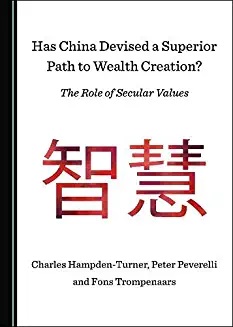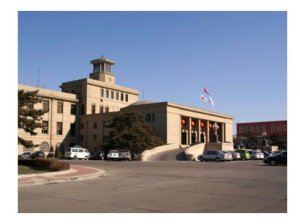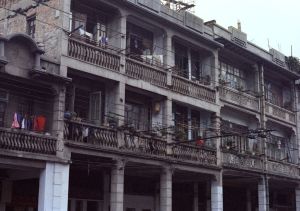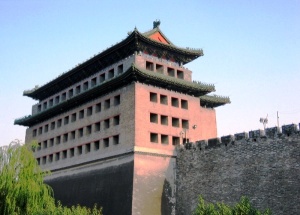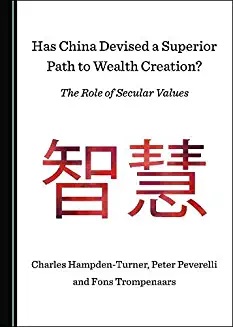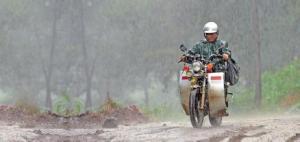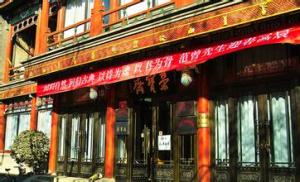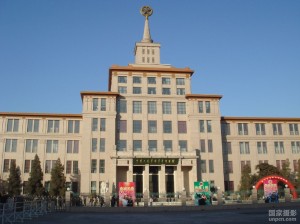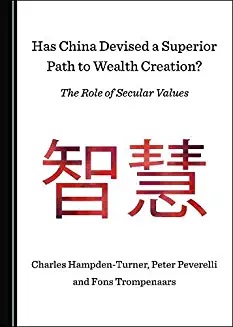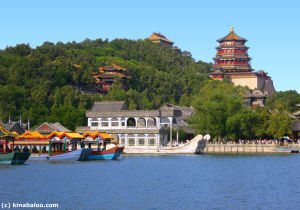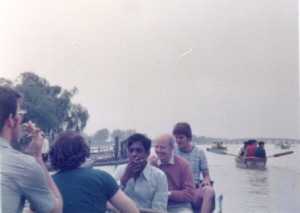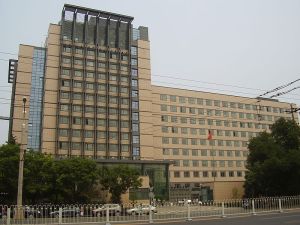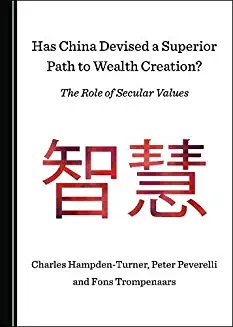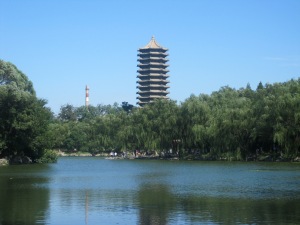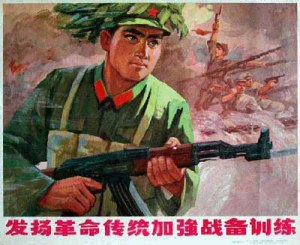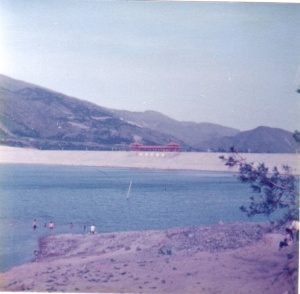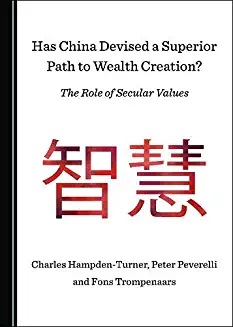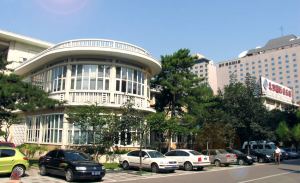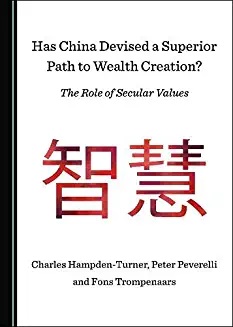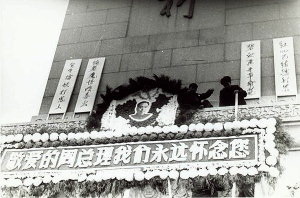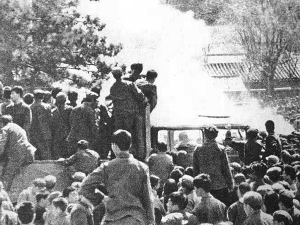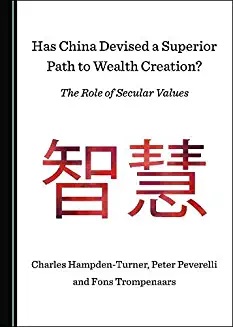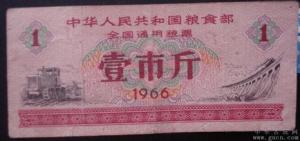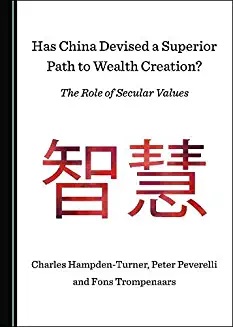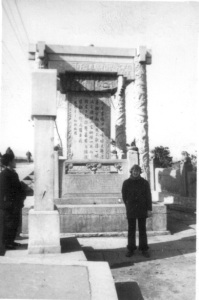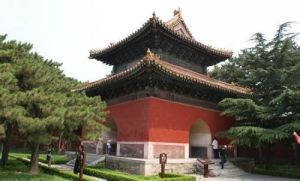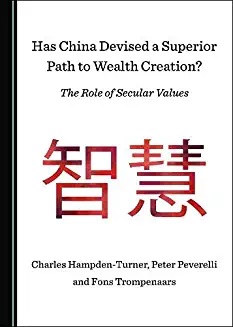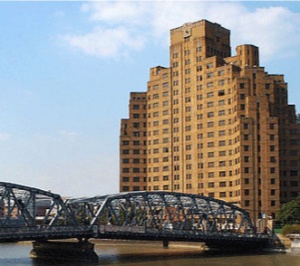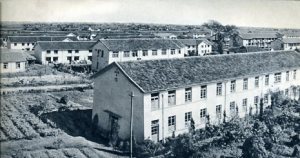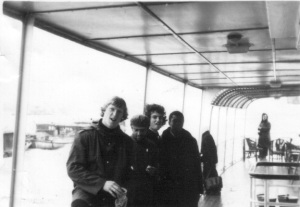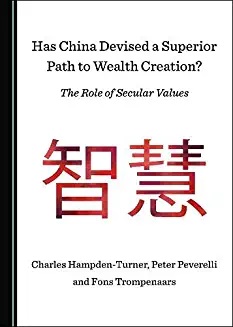The following morning I woke up with my luggage 90% packed. The Dining Hall was functioning as usual and breakfast was our final meal in the Beijing Language Institute. There was not much time to say goodbye
. . . Our departure time from Beijing’s Capital Airport was 9:30 hrs. We indeed had to leave right after breakfast. There was very little traffic that early morning, we were not the only ones waking up with a hangover from the earthquake. From the College Road (Xueyuan Lu), at which the Beijing Language Institute was located, it only took a few minutes to turn to the Third Ring Road. Then only one more turn, to the Airport Road, would take us to the Departure Hall.
We could draw out that entire track, including what tree you would pass at what place, where you needed to take care of bump in the road, what buildings were located in what position. We had covered most of that track numerous times, mostly by bus, sometimes by taxi, and occasionally on bike, on our way to the Dutch Embassy. Only the part on the Airport Road was less familiar. . .
Ronald from the Embassy was there; not only to wish us a smooth journey, but also to confirm that our parents had been informed that we lived through the earthquake unharmed. Exactly the same configuration of people was present at our departure as during our arrival almost a year earlier: Chris and I, Ronald and Teacher Bi. Of course, I had arrived one day earlier than Chris, but what the heck. We arrived at Guangzhou Airport in the early afternoon.
. . . Earthquake or no earthquake, Big Brother was still in operation. We were met by a lady from the local education authorities, our ‘guide’ to use the proper jargon who had been informed of our arrival.
After a year of being driven around in cars and buses, we had been so spoiled, that we had started to take it for granted that someone would meet us at the other end of flight, with a car.
Chris was more than a little disappointed though, when he saw the lady standing there with a sign saying: ‘Peverelli’. He had to swallow his pride, and tolerate to be a member of my entourage. . .
Guangzhou was a world of difference from Beijing. We had been given a glimpse of China outside Beijing during our winter holiday trip, but had hardly seen anything from Guangzhou during our trip to Beijing. Guangzhou was the old Canton, the gateway to China business of the old days.
. . . The local people had booked us for a night stay in the prestigious Dongfang Hotel. It was the place where all the business people stayed during the famous Canton Fair. The Chinese authorities dreaded foreign business people moving around their country freely, but they did not resent the hard currency they could earn from exporting products. The solution was the Canton Fair, an export oriented exhibition that was held twice a year in Guangzhou, late April and late October.
To put the train and planeloads of foreigners that were attracted by the Fair up, the Dongfang (Oriental) Hotel had been erected. It was a huge building, conveniently located across the street of the main entrance of the fair ground.
Inside, it resembled the hotels in which we had stayed during our winter holiday trip. After all, they were all designed after the hotels for foreigners in the Soviet Union. The Dongfang Hotel was packed during the fairs, but in-between it was almost completely deserted. . .
Guangzhou was hot and humid, but so was the city we had left behind that morning. Immediately after settling into our rooms, we went our for a walk
. . . Immediately outside the area dedicated to China’s trade with the outside world, from which it isolated itself for so long, Guangzhou was a city of winding lanes and shopping streets with roofed pavements, which were so typical for Southeast Asian cities. Guangzhou is located in the subtropical zone. Most of the year, the local people lived their lives on the streets, but they needed to hide from the scorching sunshine, as air-conditioning was reserved for top hotels and some government buildings then.
There is one scene that seems to be engraved in memory. In a small residential street, we say a young boy sitting in front of, what we presumed to be, his house. He held a bowl of rice in one hand and a pair of chopsticks in the other. He was visibly enjoying his simple meal, picking up small bits of rice and putting them in his mouth. Further away, the spire of a pagoda towered above the roofs of the houses. . .
It almost seems as if we had gone sentimental. Perhaps that was partly true, a consequence of realizing that we would leave China the following day. It felt as if we had arrived only the day before.
Back in our hotel, it was dinnertime in the dining hall. We apparently never even considered trying a local restaurant in that unfamiliar city, so we had dinner there. We were surprised to learn that the waiters were unaware of an earthquake.
After dinner we wanted to try out the hotel bar. Bars were rare in 1976 Beijing, even in the hotels. The Dongfang Hotel had a real bar that we had to try out. That proved a good choice, as we met a Swedish fellow student there. Leif was a mature student. He specialized in modern Chinese literature. Before his year in Beijing, he had already spent some time studying in Hong Kong. Like hotel staff, Leif had missed the commotion in Beijing, so we were also eager to give him our eyewitness brief.
. . . Our guide and driver were waiting for us, in the hall of the Dongfang Hotel the following morning. We had taken our time to enjoy a hearty breakfast, so we were running a little late. There was an express train to Kowloon Station waiting for us. We knew that, but took our time to bid farewell to China, particularly that part of China that we had only just started to get acquainted with.
The driver was in such a hurry, that he hit the gas, when one of Chris’ feet was still outside the car. This was not a pleasant thing to do anyway, but for Chris it was another sign of lack of consideration for someone who would be the Dutch Ambassador to China in about two decades.
It spoiled his mood, but I had a hard time to suppress my amusement, especially because neither the driver nor the guide had noticed this incident. They were chatting about whatever enjoyed their common interest then. Whatever that was, it was unrelated to the two Dutch students left in their care. . .
We had to disembark the train at Shenzhen, but when we alit the train at Shenzhen Station and looked for the border bridge, there was a small difference with a year before. A man appeared offering the service of taking care of the luggage of the foreign travelers all the way to Kowloon. This would make crossing the border more comfortable. It was not cheap, but we still paid to give ourselves a break. We crossed the border on July 30, 1976, a little past noon.
Then hell broke loose
. . . As soon as we had boarded the train from Lowu to Kowloon, we were attacked by a mob of journalists. Apparently, word had gone round that two Western students who had experienced the big earthquake in the North in person would be on that train. . .
. . . Neither of us was used to the cacophony of so many journalists all shouting their questions simultaneously. For politicians it is part of their daily routine, but it was a first for us. Some carried microphones, so they must have been from the radio or TV. The journalists were clearly eager to hear eyewitness reports about deaths, collapsed buildings, black outs, and all the typical mishap that comes with a huge earthquake. We had to disappoint them, as we could not satisfy their hunger for stories of misery. The most severe damage I could report was the crack in the wall of my dorm. . .
It was then that we learned that many foreign nations, as well as international organizations like the UN, had offered assistance to the Chinese government. The latter had refused all external aid, stating that it was very capable of handling the problem itself. . .
The journalists left us one by one, and we finally had a moment rest, before we had to deal with our next chore: picking up our tickets to Amsterdam. We therefore stored our luggage in the railroad station, and took a taxi to the to the posh Peninsula Hotel, where the KLM office was then located.
. . . We still had a few hours to kill, before we were expected at the check in counter of Kai Tak Airport, and again we wanted to spend them well, by taking a stroll along the streets of the tip of Kowloon: Tsimshatsui.
This is an area consisting of a maze of small streets lined with shops and eateries. We were not the type of people to buy souvenirs and lacked the time to take up the many unsolicited offers for cheap tailor made suits by Indian touts. However, I did do what I had done so often that year: buy a book. I got myself a pirate copy of the ‘official’ translation of the Four Books of Confucianism by James Legge. It was a bi-lingual edition. . .
Chris was unable to buy anything, he had spent his last RMB in Guangzhou and was as good as broke. We did not have credit cards then, and I was the only one with some cash left. I paid for drinks and snacks, but he probably found it a little embarrassing to let me pay for more, although I would have been happy to do so, trusting that he would reimburse me promptly.
We hailed another cab, like professional travellers. We picked up our luggage at the railroad station and headed to for the airport. There we were confronted with the overweight of our luggage. I am not only referring to our waistlines that had expanded greatly as a result of the greasy school kitchen and our gluttonous life style. The weight of our luggage also exceeded the limits. This would have cost us dearly, were it not that I spotted an old acquaintance working for KLM.
. . . Benjamin had been assigned to learn modern Chinese in Leiden by his employer, KLM. I had shared several lectures with him during my freshman year in Leiden.
KLM had started negotiating landing rights with the Chinese government and Benjamin had been assigned as the chief negotiator. In that function, he was not supposed to be able to negotiate in Chinese, but at least acquire a basic command of the language.
It was yet another situation that could be explained as a convenient coincidence, or something that had been predetermined by a higher power. Anyhow, he was a real deus ex machina then. He was happy to see me, and without hesitation told the clerk at the KLM counter that we could check in our entire luggage without any additional charges.
We felt like VIPs again, as we had during our interaction with the journalists earlier that day. Although Chris was also pleased with Benjamin’s intervention, he again had to accept that he could benefit from being part of my entourage, or more precisely: being my entourage. . .
We must have been very tired by then. My diary gives no information about what we did in the airport or our flight back. We arrived in Amsterdam in the morning of July 31, 1976.
Our relatives were waiting there. As Chris and I lived in different cities, we left the airport in different directions; and so would our lives.
My book contains short final chapter about what happened to me and my closest companions after that year in China. I will leave that information to the readers of the book.
That means that this is the final post of this blog. I believe it gives a concise but full impression of my adventures that first, very turbulent, year in China.
If you find it intriguing, buy the book. If you are a publisher interested in publishing a translation in your own language, contact me. I am also always available for questions, requests for public readings, etc.
If you like this story and would like to read all of it, you are invited to buy the book. Benelux citizens can order a copy, signed if needed, directly with the author. Others can order it at Amazon.
